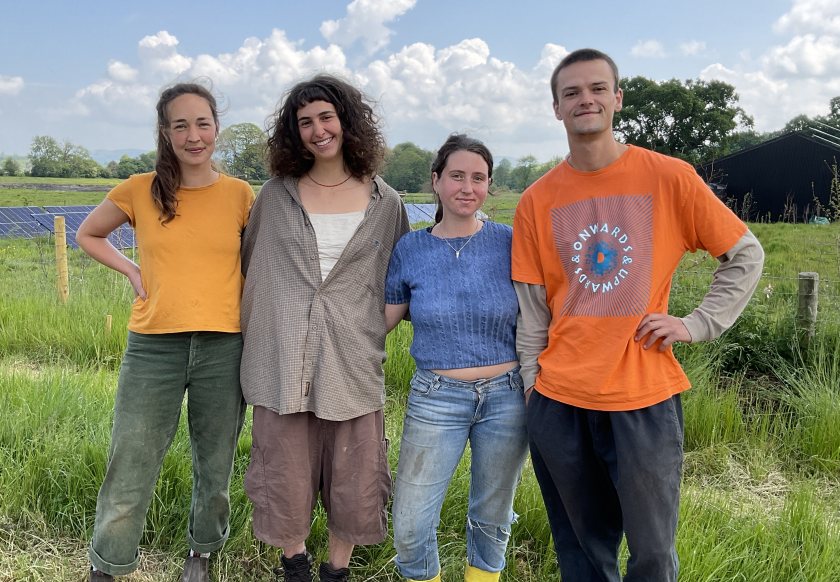Veg revolution takes root in Powys with 36-acre agroecology pilot

A bold new farming pilot has broken ground in Powys, aiming to prove that vegetables can be grown agroecologically—and commercially—on Welsh soil.
Spanning 36 acres of Powys County Council-owned land in Sarn, the initiative aims to grow produce for local markets, schools across Wales, and potentially future customers in urban centres such as Birmingham.
All three growers—selected for their detailed business plans and growing experience—hail from Powys or the neighbouring border regions.
The plots will be used both collaboratively and independently, with plans in place for a local veg box scheme and a range of individual enterprises.
These include the sale of organic vegetables to wholesalers, salad crops to local cafés, seeds to the Wales Seed Hub, and seedlings of vegetables, herbs, and trees.
Other plans feature fruit and egg sales, kimchis and chutneys for local markets, as well as workshops on beehive building and food preparation.
The growers will also incorporate agroforestry, a small number of livestock, and methods such as woodchip and biochar production to enhance soil health and manage pests.
The goal is to create a regenerative system with minimal reliance on external inputs like compost or fertiliser.
The pilot is part of the Future Farms Partnership, which brings together Powys and Carmarthenshire County Councils, Our Food 1200, and Social Farms & Gardens.
It also marks the first application of Powys County Council’s new planning guidance supporting temporary housing for small-scale horticultural enterprises. Each farmer will be based in a temporary home onsite to facilitate year-round production and management.
“This work at Sarn is a pilot that we hope can be replicated across the county on land owned by the council and by private individuals,” said Councillor Jake Berriman, leader of Powys County Council.
“We want to see more of the fruit and vegetables we eat grown here in Powys, so we can cut our food miles, improve our food security and, with it, create more resilient farming communities and more jobs.
"We are already great at livestock and dairy farming in Powys, but we could also become great at growing vegetables and grains too.”
Funding for the project has been provided by the Welsh Government (£270,000) via its Asset Collaboration Programme, the UK Government (£341,000) through the Shared Prosperity Fund, and the National Lottery Heritage Fund (£20,000) under its Local Places for Nature Capital Fund.
Duncan Fisher, director of Our Food 1200, said: “Agroecological horticulture produces a substantial amount of food on a relatively small amount of land.
"But until now, the big barrier has been the lack of housing for the farmers, who need to be onsite full time. With the council’s new planning guidance in place, the next stage in Powys is to scale this up—with more land and more housing—to open up many more opportunities for talented new entrants to farming.”
The new farmers are being supported by a network of organisations including Cultivate, Pathways to Farming, Mentera, Lantra and Farming Connect.








